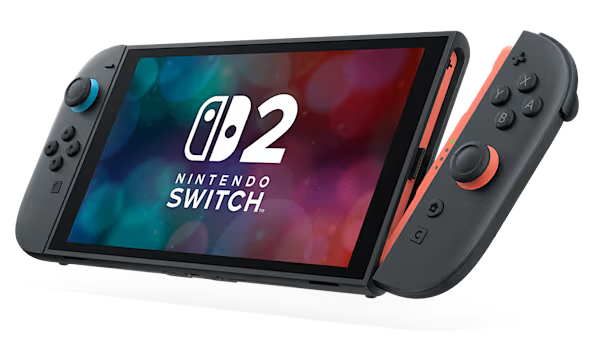What was supposed to be a major moment for the video game industry has turned into a troubled launch for the highly anticipated Nintendo Switch 2, thanks in large part to Donald Trump’s tariffs.

Nintendo had barely announced the pre-order date and price for the new handheld console when the U.S. president imposed tariffs on imports from China, Vietnam, and other countries. This led the Japanese gaming giant to suspend pre-orders in the U.S. shortly after their announcement, dealing a significant blow to the console’s launch.
The Switch 2’s launch was already set to face stiff competition in a market that’s changed dramatically since the first Nintendo Switch released in 2017. The original Switch, which became the third best-selling console of all time with over 150 million units sold, had little competition when it first launched. Today, however, it’s a different story.
Valve’s Steam Deck, a competitor that also suffered from supply chain issues—particularly from semiconductor shortages—has made notable inroads. With its ability to run Windows-based games, including many more titles than the Switch, and its flexibility in desktop mode (essentially turning it into a portable PC), the Steam Deck has attracted gamers looking for more power and versatility.
Adding to Nintendo’s struggles, President Trump’s aggressive stance on global trade, particularly with China (a major production hub for the Switch 2), has escalated. U.S. tariffs on Chinese imports are now a staggering 145%, while Vietnamese imports, another key source for Switch 2 manufacturing, were set to face 46% tariffs, though these were temporarily paused for 90 days due to volatility in financial markets.
Nintendo had planned to open U.S. pre-orders on April 9, with the Switch 2 priced at $449.99. But before any orders could be placed, pre-orders were indefinitely suspended after tariffs were enacted on April 4. This move could have lasting implications for both the console and its physical game sales, which are largely produced in Japan.
Gareth Sutcliffe, Head of Gaming at Enders Analysis, warns that the effects of these tariffs could be far-reaching, especially in terms of physical game sales. He notes that Nintendo might face challenges in either importing finished games or parts for assembly, driving up costs.
The impact on console prices could be severe, with Sutcliffe suggesting that price hikes could bring consoles closer to $1,000. If these prices become a reality, it could hasten the decline of this generation of consoles, particularly if consumers are put off by the high costs.
Nintendo isn’t the only company feeling the effects of the trade war. Xbox and PlayStation, both of which have supply chains primarily based in East Asia, are equally vulnerable to tariff disruptions. The global trade war and its ripple effects could reshape the entire video game market.
Nintendo is hoping to sell 10 million units of the Switch 2 this year, but whether that goal can be met may depend less on consumer demand and more on the whims of the U.S. president and the ongoing trade tensions.